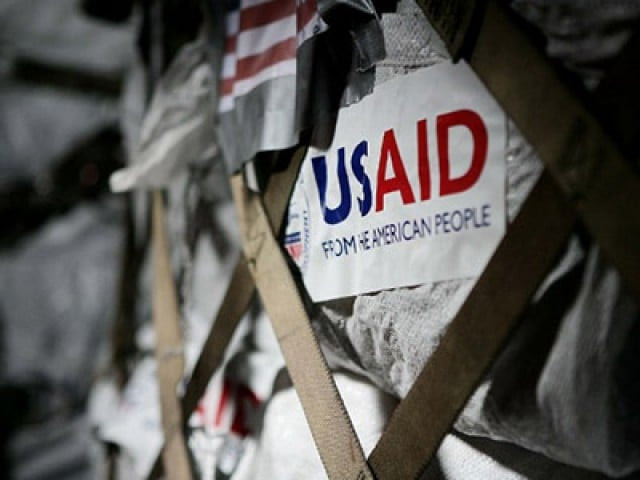USAID disputes audit report findings on partnership with Pakistan
OIG recently conducted a performance audit of the Enhanced Partnership with Pakistan Act funding

PHOTO: FILE
The detailed response of John Groarke, the Mission Director of the USAID-Pakistan, and the findings of an audit of the US’s civilian assistance programme suggest that there were serious differences among the US government departments, notably with the Office of Inspector-General (OIG).
The mission of the Office of Inspector General is to contribute to and support integrity, efficiency, and effectiveness in all activities of the USAID.
Row with State Dept derailed USAID mission
John Groarke also confirmed that expenses worth $289 million were incurred on non-project activities out of the Kerry-Lugar allocations – an expense that should not have ideally been charged from the pool allocated for Pakistan.
An amount of $46 million was spent since 2009 on USAID staff salaries and benefits out of the Kerry-Lugar funding, said the USAID mission chief.
The OIG recently conducted a performance audit of the Enhanced Partnership with Pakistan Act funding, concluding that the long-term objectives of the multi-billion-dollar programme could not be achieved because of competing priorities of the USAID-Pakistan and the State Department.
“The Audit’s critique that the State Department’s focus on short-term, politically strategic goals conflicted with USAID’s long-term development planning establishes a false dichotomy between short- and long-term planning,” stated Groarke in a written response to The Express Tribune questions.
According to him, the OIG critique also failed to acknowledge the degree to which “our investments must build upon each other to create the long-term change for which they are intended”.
Groarke said that the EPPA itself authorised a wide range of complementary short-, medium-, and long-term assistance activities, “all of which would work in tandem to achieve the overarching development goals”.
The Office of Inspector-General is responsible for ensuring integrity, efficiency and effectiveness of all USAID activities.
“The perception that long-term development objectives were overshadowed by short-term political goals does not fully appreciate the value of certain kinds of assistance to lay the foundation for future long-term growth”, said Groarke.
Interestingly, the OIG did not accept the explanation offered by USAID.
In its evaluation of the USAID management, the OIG stated: “This model is not compatible with the EPPA’s intent for long-term development because the USAID was not able to follow its development processes outlined in its policy guidance.”
USAID donates 200 bicycles to UAF Women’s Cycling Club
The USAID mission chief also disputed the OIG finding that the mission was implementing the civilian assistance programme without any country-specific strategy. Groarke said that after the EPPA enactment, the USAID and State Department jointly designed a strategic framework for civilian assistance to Pakistan.
He also contested the OIG claim that the State Department transferred the USAID staff because of policy differences. “There is no evidence that the State Department transferred USAID staff from Pakistan due to policy differences,” said Groarke.
When asked whether the Obama administration would consider taking action against the State Department or the USAID-Pakistan officials, Groarke insisted: “USAID is meeting its development objectives for Pakistan”.
Funding situation
The OIG report also indicated that out of the $7.5 billion aid, the US Congress appropriated only $4.5 billion, but actual appropriations that reached Pakistan were far less.
“Although (an amount of) $7.5 billion was authorised by Congress under the EPPA, it is not unusual for Congress to appropriate less than the funding amount authorised”, said the Mission Chief.
He said that no project was affected by lower appropriation because USAID developed programmes were based on “funds actually appropriated, not the amount authorised”.
The OIG report stated that of the $3.8 billion allocated to the USAID-Pakistan, $3.5 billion were for funding project cost and $289 million for indirect costs.
The Mission Chief confirmed that $289 million were spent on non-project activities, amounting to 8.2 percent of appropriations for Pakistan and roughly 13 percent of actual disbursements of $2.3 billion as of September this year.
“The $289 million allocated for indirect costs includes capacity-building programmes; monitoring and evaluation contracts; financial, environment and other assessments; training; communication and outreach programs; financial review and validation services; and USAID staff salaries,” said John Groarke.
He maintained that these were costs normally associated with USAID programmes around the world.
Published in The Express Tribune, September 25th, 2016.


















COMMENTS
Comments are moderated and generally will be posted if they are on-topic and not abusive.
For more information, please see our Comments FAQ